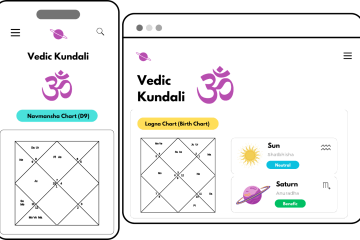In the dynamic world of automotive performance, the evolution of Engine Control Unit (ECU) tuning software stands as a testament to the relentless pursuit of enhanced vehicular capability. As we venture deeper into the 21st century, the intersection of technology and automotive engineering continues to redefine the boundaries of what’s possible, paving the way for a future where cars are not just faster and more efficient but are smarter and more adaptable to individual needs than ever before.
This exploration into the future trends in ECU tuning software and automotive performance unveils the potential transformations that could reshape our driving experiences.
The Advent of AI and Machine Learning in ECU Tuning
One of the most significant advancements in ECU tuning software is the integration of artificial intelligence (AI) and machine learning algorithms. Traditional tuning methods, while effective, often operate within a set of predefined parameters, limiting the scope of optimization. AI and machine learning revolutionize this process by enabling the software to analyze vast amounts of data from the vehicle’s performance in real time, adapting and optimizing the engine’s parameters to suit varying driving conditions and styles.
This technology promises a future where ECU tuning is not just about unleashing maximum power but about customizing vehicle performance to meet the specific needs and preferences of the driver. Imagine a scenario where your car learns from your driving habits, optimizing fuel efficiency for your daily commute, but seamlessly switching to performance mode when you’re looking for a more spirited drive.
Enhanced Connectivity and Cloud-Based Tuning
The future of ECU tuning also points towards greater connectivity, with cloud-based platforms becoming increasingly prevalent. This shift will likely introduce a new era of convenience and accessibility in vehicle tuning, allowing updates and optimizations to be delivered over the air (OTA). Such advancements mean that drivers can receive the latest tuning adjustments and software updates without the need to visit a tuning shop or physically connect their vehicle to a tuning device.
Beyond convenience, cloud-based ECU tuning opens up possibilities for a more collaborative and data-driven approach to vehicle performance enhancement. By aggregating data from a wide range of vehicles, tuning software can leverage big data analytics to identify optimal tuning profiles for specific makes and models, further refining and improving performance outcomes.
The Rise of Electric Vehicles and the Evolution of ECU Tuning
As the automotive world shifts towards electrification, the role and nature of ECU tuning are set to evolve. Electric vehicles (EVs) present a different set of challenges and opportunities for performance enhancement, primarily because EVs lack a traditional internal combustion engine (ICE). However, this doesn’t mean that ECU tuning will become obsolete. Instead, the focus will shift towards optimizing battery management systems, electric motor control, and energy regeneration strategies.
In the context of EVs, ECU tuning could involve adjusting parameters that impact the vehicle’s acceleration profiles, improving energy efficiency, and even customizing the regenerative braking system to suit the driver’s preference. This indicates a future where ECU tuning continues to play a crucial role in automotive performance, albeit with a focus that extends beyond the conventional ICE.

Cybersecurity and Ethical Considerations
With the increasing sophistication of ECU tuning software, especially with the integration of AI, cloud connectivity, and the emphasis on electric vehicles, cybersecurity emerges as a critical concern. Protecting vehicles from unauthorized access and ensuring that tuning does not compromise vehicle safety or violate regulations will be paramount. As such, the future of ECU tuning will likely see a greater emphasis on secure software development practices and ethical considerations, balancing performance enhancements with the responsibility to maintain vehicle integrity and safety.
Sustainable Performance Enhancement
As the global narrative shifts towards sustainability and environmental responsibility, ECU tuning software is also expected to adapt, focusing not only on enhancing performance but also on reducing environmental impact. This trend towards sustainable performance enhancement involves optimizing engine parameters not just for power and efficiency, but also for lower emissions. Advanced ECU tuning could enable vehicles to achieve the best of both worlds: exhilarating performance coupled with a reduced carbon footprint.
The development of ECU tuning for hybrid vehicles exemplifies this shift, blending the raw power of traditional combustion engines with the efficiency and low emissions of electric motors. For fully electric vehicles, tuning will concentrate on energy management, optimizing battery usage, and extending range without sacrificing performance. As regulatory pressures increase and consumer preferences evolve, sustainable tuning practices will become a significant selling point, offering drivers a guilt-free enhancement to their driving experience.
Personalization and User Experience
The future of ECU tuning is not just about the vehicle’s performance metrics; it’s increasingly about personalization and enhancing the user experience. Tomorrow’s tuning software will likely offer more intuitive interfaces, allowing drivers more control over the tuning process and the ability to customize their vehicle’s performance characteristics according to their personal preferences.
This level of customization could extend beyond performance tuning, incorporating ambient features such as lighting, sound, and even the vehicle’s response to driver inputs, creating a fully personalized driving environment. The role of ECU tuning in enhancing user experience highlights a shift in how people interact with their vehicles. Cars become extensions of the individual’s lifestyle and personality, with tuning software acting as the bridge between the driver’s desires and the vehicle’s capabilities.
Incorporating advanced user profiles, the software could adapt to different drivers, automatically adjusting settings based on who is behind the wheel. This approach not only enhances the driving experience but also introduces new layers of convenience and safety, ensuring that the vehicle always performs optimally for each specific driver.
Wrapping Up
The trajectory of ECU tuning software and automotive performance is headed towards a future where technology, sustainability, and personalization converge to redefine what it means to drive. The advent of AI and machine learning, the rise of cloud-based solutions, the pivot to electric vehicles, and a growing emphasis on cybersecurity and ethical considerations, lay the groundwork for this future. Added to this are the emerging trends of sustainable performance enhancement and the drive towards a more personalized user experience, both of which promise to make the future of automotive tuning exciting, inclusive, and aligned with broader societal values.
As we embrace these changes, the relationship between drivers and their vehicles will continue to evolve, characterized by a deeper level of interaction and understanding. The advancements in ECU tuning software will not only push the boundaries of automotive performance but will also create a more connected, sustainable, and personalized driving experience, marking the next chapter in the rich history of automotive innovation.




